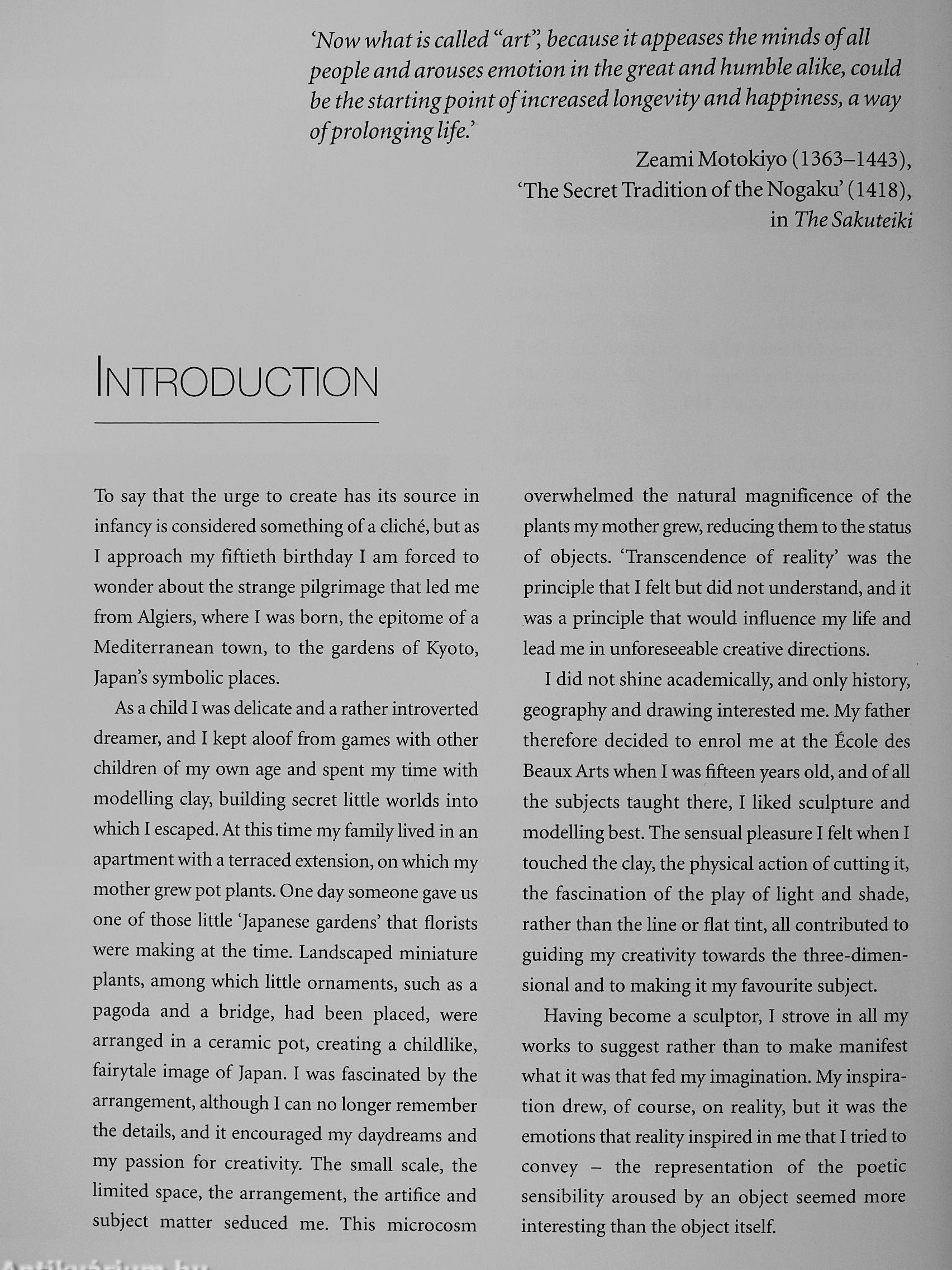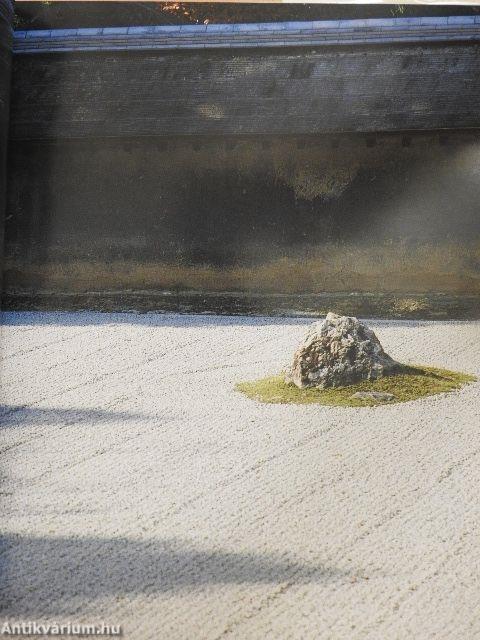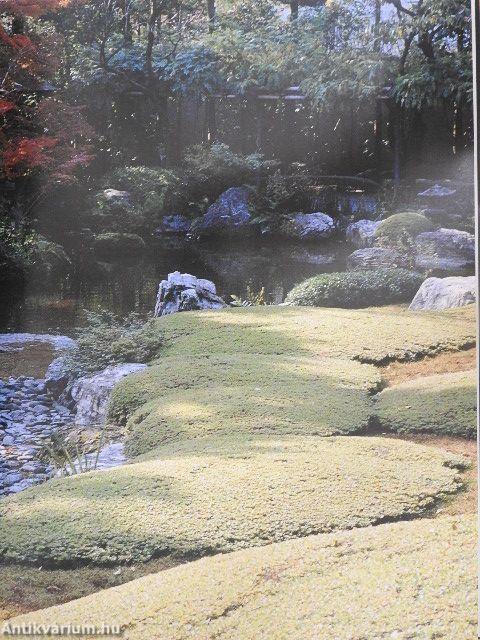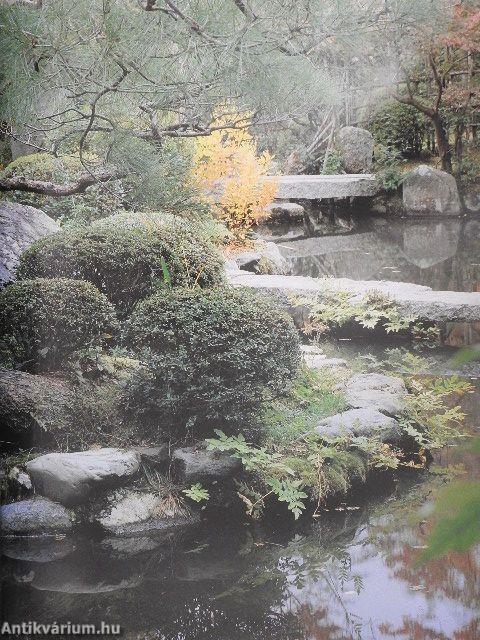1.062.389
kiadvánnyal nyújtjuk Magyarország legnagyobb antikvár könyv-kínálatát

VISSZA
A TETEJÉRE
JAVASLATOKÉszre-
vételek
Zen Gardens
| Kiadó: | Ward Lock |
|---|---|
| Kiadás helye: | London |
| Kiadás éve: | |
| Kötés típusa: | Fűzött keménykötés |
| Oldalszám: | 166 oldal |
| Sorozatcím: | |
| Kötetszám: | |
| Nyelv: | Angol |
| Méret: | 30 cm x 24 cm |
| ISBN: | 0-7063-7855-5 |
| Megjegyzés: | Színes fotókkal. |
naponta értesítjük a beérkező friss
kiadványokról
naponta értesítjük a beérkező friss
kiadványokról
Előszó
TovábbFülszöveg
Oriental gardens have always had a close relationship with spiritual and religious ideas. Some of the first to be created were buih in forest clearings, or on mountainsides as shrines dedicated to nature gods. Over time, as spiritual beliefs developed and changed, a complex set of rules and taboos about garden design evolved, and simple shrines gave way to the highly stylized creations that we recognize today
The first Zen gardens were created by Buddhist monks in the eleventh century They combined the traditional Oriental elements of minerals, water and plants, but, interpreted by Zen philosophy the garden became a medium of meditation. The grounds around buildings took on both an aesthetic and a utilitarian function. For example, a pathway could provide access to a building, and the arrangement of the stepping-stones could also ensure that a visitor's journey along the path might bring about a contemplative frame of mind.
In this book, Erik Borja explores the history and... Tovább
Fülszöveg
Oriental gardens have always had a close relationship with spiritual and religious ideas. Some of the first to be created were buih in forest clearings, or on mountainsides as shrines dedicated to nature gods. Over time, as spiritual beliefs developed and changed, a complex set of rules and taboos about garden design evolved, and simple shrines gave way to the highly stylized creations that we recognize today
The first Zen gardens were created by Buddhist monks in the eleventh century They combined the traditional Oriental elements of minerals, water and plants, but, interpreted by Zen philosophy the garden became a medium of meditation. The grounds around buildings took on both an aesthetic and a utilitarian function. For example, a pathway could provide access to a building, and the arrangement of the stepping-stones could also ensure that a visitor's journey along the path might bring about a contemplative frame of mind.
In this book, Erik Borja explores the history and philosophy of the Zen garden and explains the main principles for creating one. He also looks in detail at the essential components that should be included. Stone is the foundation of the garden; the timeless quality of rock can be contrasted with the fluid nature of gravel, to express both the permanence and the changeability of the world. Water is also important, as water is celebrated as the source of all life. Finally, in a cuUure that reveres nature, trees and plants provide a living, growing element which recalls the natural landscape.
Erik Borja is a designer who specializes in Oriental gardens. Since his first visit to Japan twenty years ago, the lessons of Zen have been the inspiration for his work. Throughout this book he aims to introduce the reader to the basic concepts of Zen gardening and to explain how to adapt these ideas. The book is illustrated with inspirational photography of the gardens that Erik Borja has created over the past fifteen years. Vissza
Témakörök
- Idegennyelv > Idegennyelvű könyvek > Angol > Művészetek > Építészet
- Idegennyelv > Idegennyelvű könyvek > Angol > Természettudományok > Egyéb
- Természettudomány > Növényvilág > Kertépítés, parképítés
- Művészetek > Építészet > Kontinensek szerint > Ázsia > Távol-Kelet
- Művészetek > Építészet > Idegen nyelv > Angol
- Hobbi > Egyéb
- Művészetek > Építészet > Építészettörténet > Külföldi
- Idegennyelv > Idegennyelvű könyvek > Angol > Hobbi > Egyéb
- Művészetek > Építészet > Korszakok, stílusok
Erik Borja
Erik Borja műveinek az Antikvarium.hu-n kapható vagy előjegyezhető listáját itt tekintheti meg: Erik Borja könyvek, művekMegvásárolható példányok
Nincs megvásárolható példány
A könyv összes megrendelhető példánya elfogyott. Ha kívánja, előjegyezheti a könyvet, és amint a könyv egy újabb példánya elérhető lesz, értesítjük.















